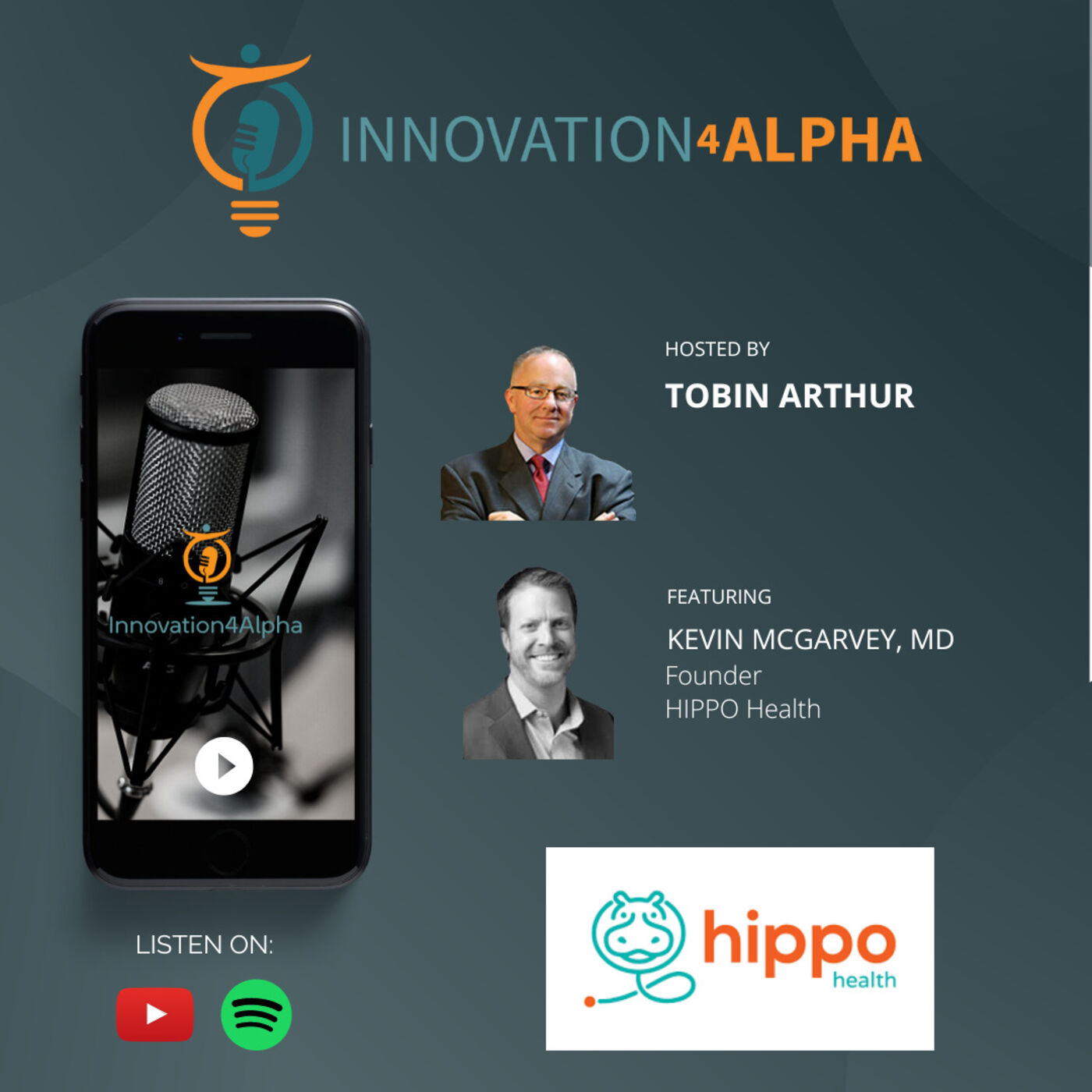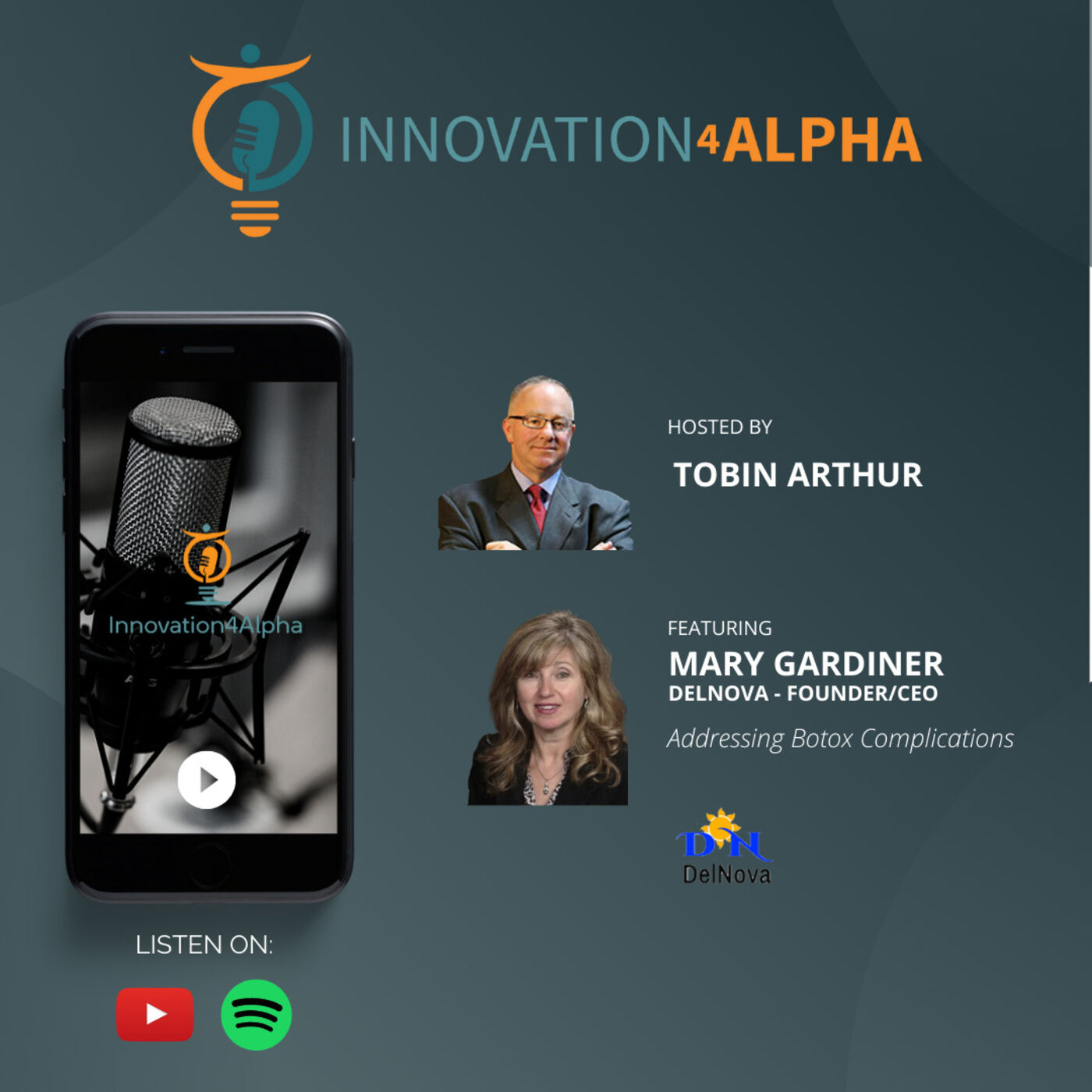Episode Transcript
<cite>Tobin Arthur:</cite>
<time>0:22</time>
<p>Hi, everybody, this is Tobin, Arthur, with the Innovation 4 Alpha podcast, and I am really looking forward to some conversations with David Finkel, who is the founder of Maui Mastermind, he's an author, speaker does does it all. And I've gotten to know David and I've attended one of his workshops, I know some of his clients. And it is all glowing in terms of the outcomes and things that David and his organization have achieved. So David, I'm really excited to spend some time with you today. I appreciate you spending the time with me.</p>
<cite>David Finkel:</cite>
<time>0:54</time>
<p>Yeah, of course, Tobin, it's a pleasure. It'll be a lot of fun.</p>
<cite>Tobin Arthur:</cite>
<time>0:57</time>
<p>David, let's start off just with a little bit of your background, give everybody some context. Tell us about how you came to create Maui mastermind. What did you before that, and then we'll get into why the name "mastermind."</p>
<cite>David Finkel:</cite>
<time>1:08</time>
<p>So after playing sport and retiring from injury, in my mid 20s, I got started in a business that was doing coaching in a specific niche industry. And we built that over the course of about a decade to the largest player in that industry, working with about two to 3000 coaching clients a year and then I sold it. I was 35 when I sold it and trying to figure out what do I want to do next. And for me, I love business and it's always been a puzzle. It's been enjoyable. I got to watch firsthand. My grandfather owned a pharmacy and my dad was a physician for 40 plus years. In his practice, internal medicine and Nephrology and watching how he did it versus how I did it was really instructive. He approached it like a physician, and he did a great job. He was a phenomenal doctor. But the idea of business was uncomfortable. And I realized that for me, I love the business portion. And so I built another business coaching company- Maui Mastermind - we've been working now for close to 20 years with entrepreneurs and business owners, teaching them to grow a business, not just a job. And that's been our real focus.</p>
<cite>Tobin Arthur:</cite>
<time>2:18</time>
<p>That's neat. I didn't even realize your father was a physician. So that's a great tie into some of the things we're going to talk about. And just so everybody knows, we're going to break this conversation up into a couple of different episodes because they're a bit thematic. So if you like some of the things we talked about here in the first portion, you're going to like the things that come subsequent to that. Let me just ask you about the name so mastermind. Some people may reference Think and Grow Rich, Napoleon Hill's famous book where he talks about having a mastermind group was that a little bit of where that portion of the name came from? Or how did it evolve?</p>
<cite>David Finkel:</cite>
<time>2:50</time>
<p>It was originally 25 or 26 years ago. And it always fascinated me as I'd watched what happens when a group becomes more than just a committee it becomes more than just a team. And I saw that in my world of sports, I used to play on a US national team, and, and when we had the right chemistry boy, we were amazing. And when we didn't, boy, we we stunk. And so, when I got into the business world, the first company, my partner decided on the name, but the second one since was just me, I thought, you know, I really liked this, we had an event going on once a year and we call that event Maui Mastermind and we just kept it. This idea of group of people who are focused as a community not unlike, for example, AngelMD is an example of a mastermind community; how can we help source and serve each other. And we've done that with business community ourselves, and that's where the name came from.</p>
<cite>Tobin Arthur:</cite>
<time>3:44</time>
<p>I love it. And as I got to know a bit about the organization, I was able to read some of your books, but one of those books is "Grow Your Medical Practice and Get Your Life Back", which I found incredible. It breaks down very simply for physicians a lot of the concepts that I imagine you're applying to all kinds of small and midsize businesses. Talk a little bit about how you, you know, came to write this book. And you know, again, even going back to your father's experience, the fact is, physicians are different, but they are in fact, small to midsize businesses. So talk a little bit about the evolution of getting into the health care portion of your practice.</p>
<cite>David Finkel:</cite>
<time>4:23</time>
<p>So first of all, a few data points. You know, in our coaching practice, probably the largest single niche, are service and professional service firms; and of those professional service firms, medical is by far the biggest; now include dental in there, and even Chiropractic in that niche. And so I watched my dad, he was a phenomenal doctor, but the whole idea of running a business he completely abdicated to Nancy who was his office manager, and thankfully she was honest, as far as I could tell looking in. But when I watched him walk away from his business, he just did what most physicians do. He didn't sell the practice because he didn't think it had a value. And if he had he just done a few different things along the way, he could And so I'd written a book with a friend of mine, a guy who had have sold that practice for several million dollars, and then retired. Now he thankfully had saved along the way and invested in his building and some other things. So he's okay with that part. But it was painful to watch. started a company called Priceline.com. And we wrote this book "Scale". And what I kept hearing from our medical clients, time after time, yeah, but my life, my business, my practice is different. And I smiled, because I, at that point, had worked with hundreds of different medical groups. And I knew that it wasn't different. It just was a perspective on their part. Yes, there were some things that were specific to that niche. Whether it be regulatory, or how the business models do, and don't work, the various laws that govern what we can and can't do. But the business aspects were very similar. And our clients who had realized that, or let us guide them to realize that, had a great result. And so I finally just locked myself in a room and finished that book, which was a redo of a book earlier called"Build a Business Not a Job." just for medical groups. All these things make sense for every other company out there in the world, but US medical folks, were that different, that unique, and the price they pay by being different and unique is they have a company that is stressful, they have a company that's reliant on them, they have a company that has less of an enterprise value. And most importantly, they have a company that they don't serve as greatly as they could, if they made a few simple shifts and changes strategically in the format. And the structure.</p>
<cite>Tobin Arthur:</cite>
<time>6:41</time>
<p>Well, that last point is really well taken, which is it's not just about them, it's about being of even greater service to their communities. But one of the things that unique about doctors is unlike many entrepreneurs, who may have had some affiliation or experience with business; in medical school, residency, etc, they give no exposure to business. So here they are starting to serve patients, and these become, in most cases, multimillion dollar enterprises. And so they're challenged with hiring and challenged with building systems that are just very foreign to them. And then as you indicate, they're very, very busy with the patient side of the practice. And so what do you find? What's the moment where physicians get to the point in their career and ask themselves? Is this really it? Because I do think the mindset of physicians is that they're programmed to think this is a calling. It's kind of what's required to have a challenging family life, you're going to dedicate yourself almost like a calling, if you will. And so as a result, your personal life is going to suffer. And I think a lot of them go for decades with that expectation. But what how do you find the moment where they go,"there's got to be a better way to do this."</p>
<cite>David Finkel:</cite>
<time>7:54</time>
<p>It's interesting, the AMA, American Medical Association in 2019 made a report that year talking about physician burnout, they saw what was going on. Now, they didn't quite know how to solve that. But they did put their finger to You know, when do I see the light switch go on? When we have it. a group full of people, and the doctors in the room have a practice where they've done this, then they start getting interested. But then they still have that voice that says,"Yeah, but they're different." There's situations different in my world, they hear the second one. And they say, "That's great. Wouldn't that be nice?" I'll give an example, one of the groups who work with they do bariatric surgery procedures, you know, lap bands, etc. And they have a really great practice in Nevada. We serve started working with just one surgeon with a surgical team, they did a good volume, he was very good at what he did, his name is Tom. But since that point eight years later, Tom now has two other surgeons that work with him and he takes 22 weeks off a year; and the practice is five times more profitable. You know, you hear that once you go, Oh, my gosh, but not me. Okay, but now you hear a dozen of those stories. And you finally say, "Okay, I'm finally ready to acknowledge that if this could be true, that I could build a practice that I still contribute to, I still create value in but it's not completely reliant on me. That would be something that I want." And that's the opening. And until that point happens, the main provider, the main founding physician, he or she is just going to be working extraordinarily hard, and doing the management on the side and what's going to happen I see. You know, at one point, they're going to either sell the practice and stay as an employed physician, or they're going to keep working and just become more and more burned out from what they do and jaded feeling like this wasn't what they originally came into medicine to do.</p>
<cite>Tobin Arthur:</cite>
<time>9:53</time>
<p>Well, it's interesting. You just hit on a topic, I didn't actually expect us to go down but in fact, more and more physicians and dentists are selling their practices and becoming employees. And the trend is enormous. I think it's well over half of doctors now. And so talk a little bit about that, maybe some of the what you hear once they do become employees; because what I hear is they're not great employees, they like their autonomy, and then all of a sudden, now they've got to punch a clock. But how do they maintain that independence? Because of all of the forces they feel are against them regulatory and reimbursements and all those things.</p>
<cite>David Finkel:</cite>
<time>10:30</time>
<p>Yeah, I mean, so there's good news and bad news, I'll share the bad news. First, you know, if you do go the route of an employee position, what's gonna happen is the first one or two years, you're happy, because you're not dealing with staff challenges the same way, you don't feel what's on your shoulders. But within that 12 to 24 month period, you do start to have the friction of they're running it differently. I don't like what they're telling me to do. They're changing how many I should be seeing in terms of consults in a day, they're changing this procedure. You see it time after time after time. That's the bad news. The good news of it is, and this is what does work. When you come at this as a business perspective, here's the good part in medicine, most physicians are not very good business people they're not. They didn't have the training or the rest of it. But, small changes done well can make a radical shift. The beauty of it is most of the physicians are some of the brightest individuals on the planet. And so they get this stuff intellectually. Now, if we can just get them from cognitive to actual limbic, and actually have them doing it, acting on it, behaving it, that's where coaching or other types of ongoing support come in their competition is not as great as they fear. The big players in the community, they tend to turn off a lot of the referral basis. Yes, they have a lot of weight, because they have economically a lot of force and a community. But there is a certain type of hidden rebelliousness about most of the referral base that would prefer to see David tramp over got Goliath. And I see that time and time again, if only I am a better business person. And it's not that hard to be a better business person.</p>
<cite>Tobin Arthur:</cite>
<time>12:11</time>
<p>So I want to wrap up this introductory part with a couple of thoughts you've just shared and that I took from the book, first of which is, they're not alone. They are not as unique as they think. And I wholeheartedly agree with, as you said, once you start hearing some of the testimonials, and you've got some great ones in the book, they start to say,"wait a minute, this practice could work for me and not the other way around." And the other thing that you just mentioned that I think is really powerful is that these are not huge shifts, there is a lot of work. But you've broken it down incrementally. And you talked about the Pareto Principle, which we'll get to in a little bit. But this idea that small changes can have big levers and can make big differences over time. And so and I think the other piece of this is there's a team effort here, and we'll get into why that is. So great, great introduction. And and I think for any physician, or dentist that's listening to this, that's thinking, "Man, I'm working 60, 80, 90 hours a week. I don't see my family, I'm taking call, reimbursements are going in the wrong direction, I'm making less money than I did 10 years ago, and I'm working harder and I'm on this hamster wheel. I can't get off. I guess</p>
<cite>this is the bottom line:</cite>
<time>13:53</time>
<p>you're saying you absolutely can get off. There's a systematic way to get there.</p>


